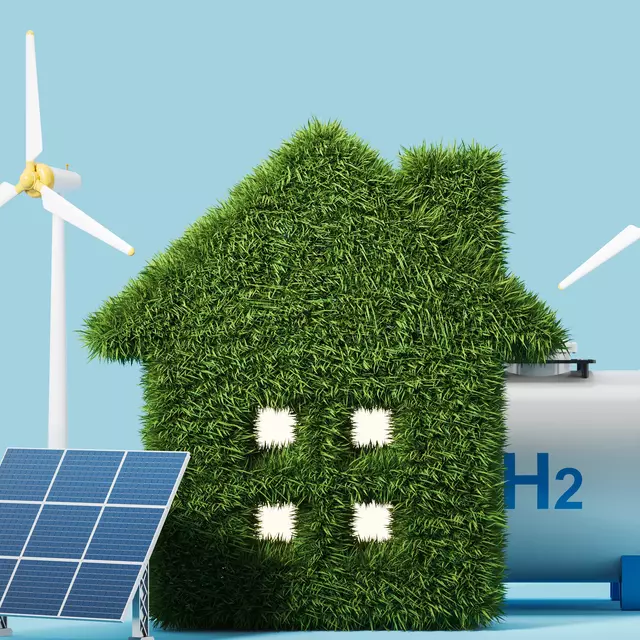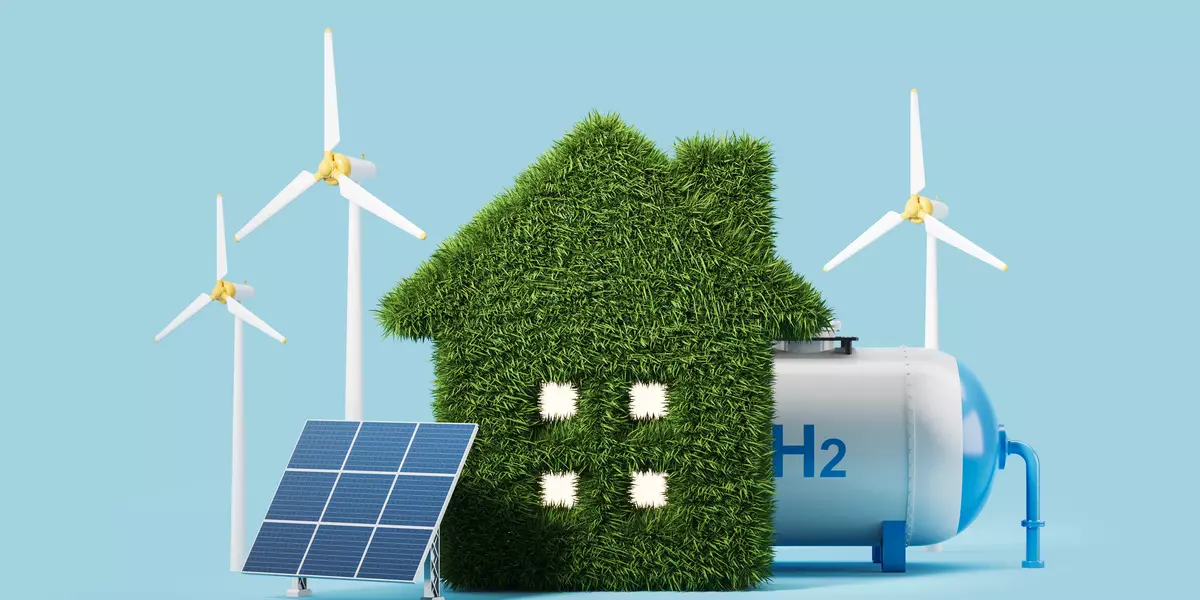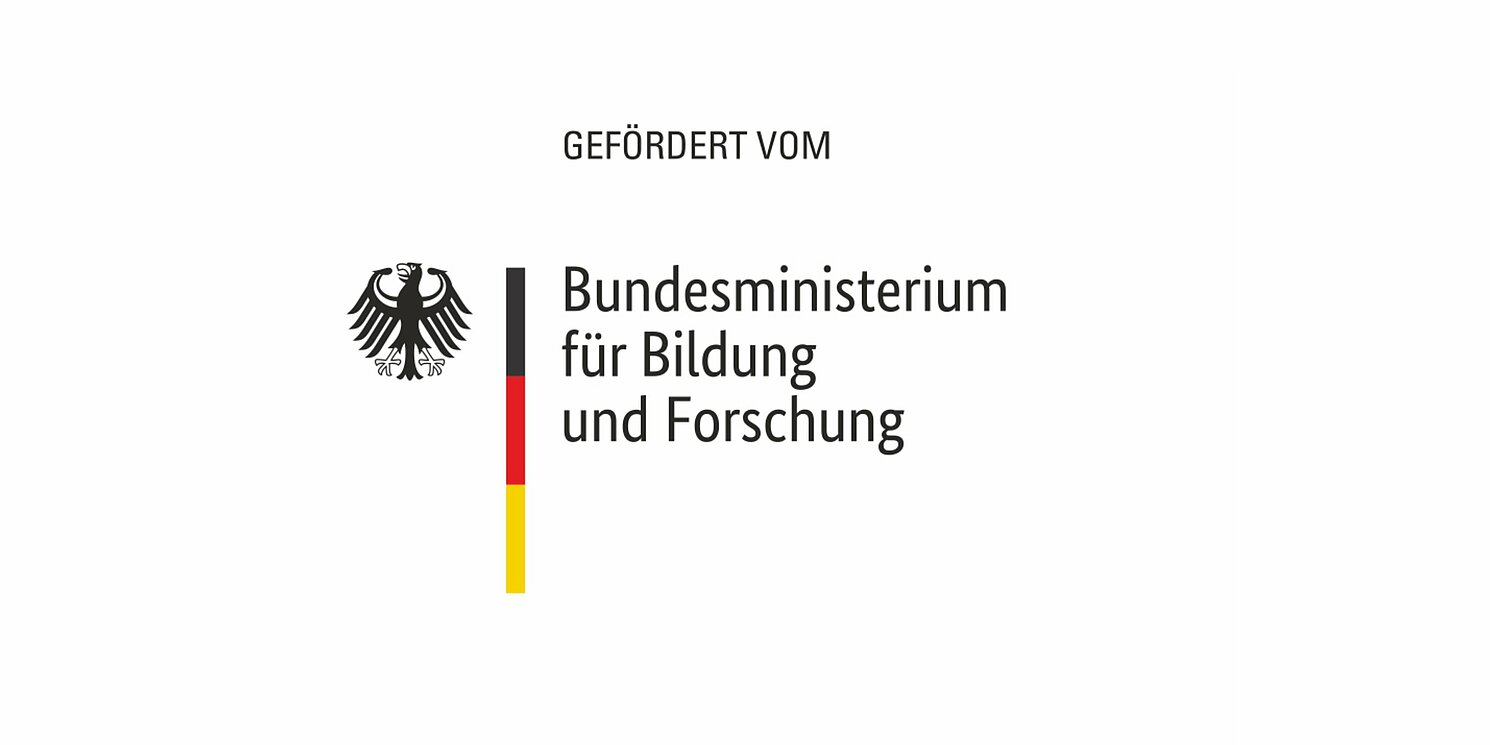LivingH2
Demonstration of a complete hydrogen fuel cell system


Demonstration of a complete hydrogen fuel cell system
LivingH2
The heating market is a complex utilization sector in which the switch to renewable energies is relevant in addition to efficiency measures in order to achieve climate protection targets. The National Hydrogen Council (NWR) assumes a hydrogen demand of 5 to 10 TWh for the year 2030 and a subsequent rapid increase to approx. 125 to 500 TWh [1]. In a study commissioned by the NWR, hydrogen demand was identified in particular in the areas of district and process heat supply [2]. In this context, hydrogen-based combined heat and power (CHP) systems are highly relevant, as these systems can easily replace fossil-fueled combined heat and power (CHP) plants and contribute to a sustainable energy supply. The "LivingH2" project builds on this by installing and safely operating a CHP unit supplied entirely with hydrogen in a typical domestic environment with standard connections. To this end, the entire hydrogen system was implemented in a "Living Lab", starting with green H2 production.
Based on the project objective, five central research tasks were derived:
1. development of improved polymer electrolyte fuel cell membrane electrode assemblies (PEMBZ-MEAs),
2. integration of MEAs in fuel cell stacks,
3. optimization and development of the FC CHP system,
4. installation and demonstration of a complete system with H2 CHP,
5. techno-economic, ecological and social evaluation of the solution.
German and French partners are involved in the project. These include universities, research institutes, energy companies and medium-sized enterprises. The project involves an intensive exchange between German and French project participants.
As part of the project, the German project participants contribute their expertise in the development of FC systems and social, techno-economic and ecological assessments. The French partners are contributing their expertise in the development of new PEM FC-MEAs and energy solutions with hydrogen.
The Research Center for Energy Networks and Energy Storage is involved in the project with the techno-economic and ecological evaluation of the process concept and its comparative classification with conventional alternatives. Furthermore, macroeconomic influences and possible climate protection-relevant effects of the concept on Germany and France are analyzed and evaluated using the research center's national optimization model.
Sources:
[1] National Hydrogen Council, Ed., "Update 2024: Greenhouse gas savings and the associated hydrogen demand in Germany," 2024 [Online]. Available: https://www.wasserstoffrat.de/fileadmin/wasserstoffrat/media/Dokumente/2024/2024-05-03_NWR-Grundlagenpapier_Update_2024_Wasserstoffbedarfe.pdf
[2] Fraunhofer ISE / IEE, "Bottom-Up Study on Path Options for an Efficient and Socially Compatible Decarbonization of the Heating Sector: Executive Summary," 2022. [Online]. Available: https://www.wasserstoffrat.de/fileadmin/wasserstoffrat/media/Dokumente/2022/Kurzfassung_bottom-up-Studie_20221127.pdf

